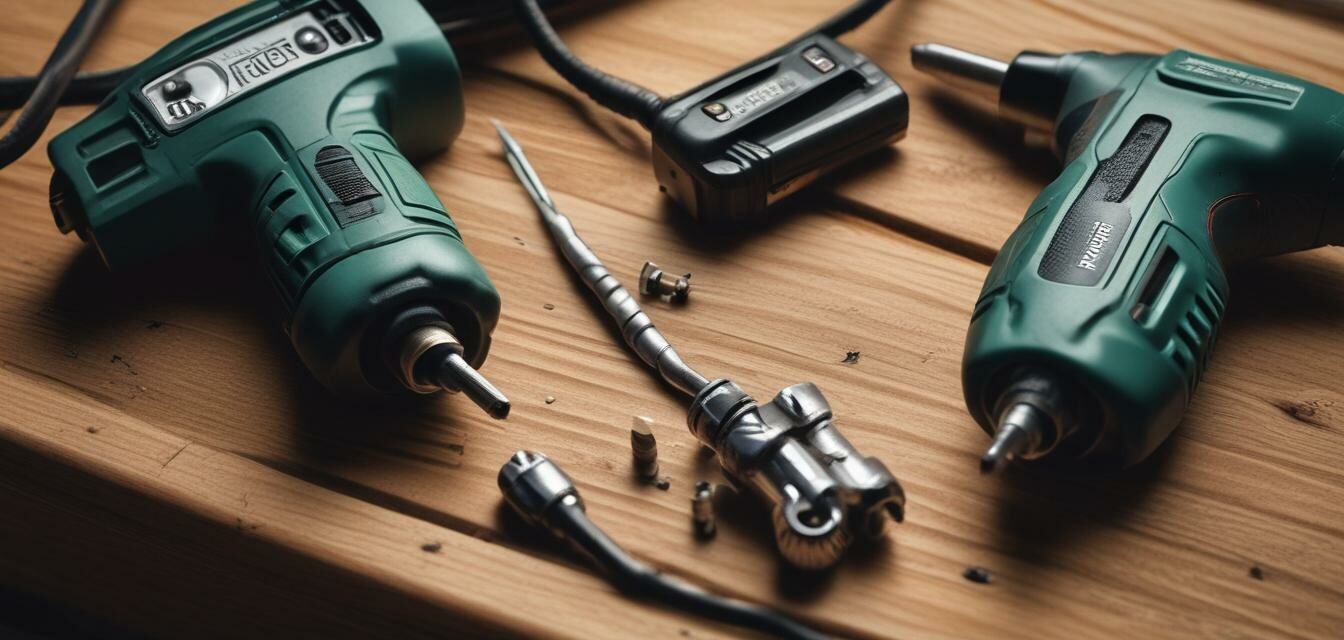
Evaluating Cordless vs. Corded Power Tools
Key Takeaways
- Cordless tools offer portability and convenience, while corded tools provide consistent power.
- Battery life and charging time are critical factors for cordless tools.
- Corded tools are typically more powerful, making them suitable for heavier tasks.
- Consider your project needs and work environment when choosing between the two.
- Both types of tools have unique features that cater to different user requirements.
When it comes to choosing power tools, the decision between cordless and corded tools often leaves many users puzzled. Understanding the strengths and weaknesses of each type can significantly impact your DIY projects or professional work. Let's dive into the comparison.
Understanding Cordless Power Tools
Cordless tools are powered by rechargeable batteries, allowing the user to work without being tethered to an outlet. This makes them an attractive option for those who prioritize mobility and ease of use. However, there are essential aspects to consider when evaluating cordless tools.
Pros of cordless power tools
- Enhanced mobility and flexibility on job sites or during projects.
- No cords to manage, reducing tripping hazards.
- Ideal for outdoor work or remote locations.
- Modern battery technology results in powerful performance.
Cons of cordless power tools
- Battery life may limit prolonged use, requiring frequent charging.
- Initial cost can be higher than some corded options.
- Performance may decrease as the battery drains.
Understanding Corded Power Tools
Corded tools are powered directly from an electrical outlet, providing continuous power for demanding tasks. They are often seen as the traditional choice for contractors and heavy-duty projects. Below are the pros and cons of corded power tools.
Pros of corded power tools
- Consistent power delivery without the concern of battery life.
- Tend to be more powerful, suitable for heavy-duty work.
- Generally less expensive than comparable cordless equivalents.
- Longer usage without interruptions from charging.
Cons of corded power tools
- Limited mobility due to reliance on electrical outlets.
- Cords can create trip hazards and limit reach.
- Not practical for outdoor work without proper extension cords.
Comparison of cordless and corded power tools
| Feature | Cordless Power Tools | Corded Power Tools |
|---|---|---|
| Portability | Highly portable; can be used anywhere | Limited to the length of the cord |
| Power | Less power; dependent on battery | More power for heavy tasks |
| Convenience | No cords to navigate; easy to use in various locations | Requires access to outlets; cord management needed |
| Battery Life | Limited by battery capacity; charging time required | No battery to worry about |
| Cost | Generally higher initial costs | Usually lower initial costs |
Choosing the Right Tool for Your Needs
When evaluating cordless versus corded power tools, the right choice ultimately depends on your specific needs. Consider the following questions:
- What types of projects will you be working on?
- How often will you use these tools?
- Do you need portability for outdoor tasks?
- What is your budget for power tools?
Conclusion
Both cordless and corded power tools have unique advantages and disadvantages. If your projects require frequent mobility and freedom from cords, a cordless tool might be more suitable. However, if you need consistent power for heavy-duty tasks, consider investing in corded options. Make a decision based on your specific needs, and remember to explore our cordless drills and angle grinders for more insights into the available options.
Tips for Beginners
- Start with basic tools and gradually build your collection.
- Familiarize yourself with safety measures for using power tools.
- Read reviews and comparisons to make informed purchases.
- Assess your needs before investing in high-end models.
Pros
- Enhanced versatility with both cordless and corded tools
- Option for specialized tools for specific tasks
- Wider range of applications based on project needs
Cons
- Too many options can lead to confusion for beginners
- Initial investment can be expensive
